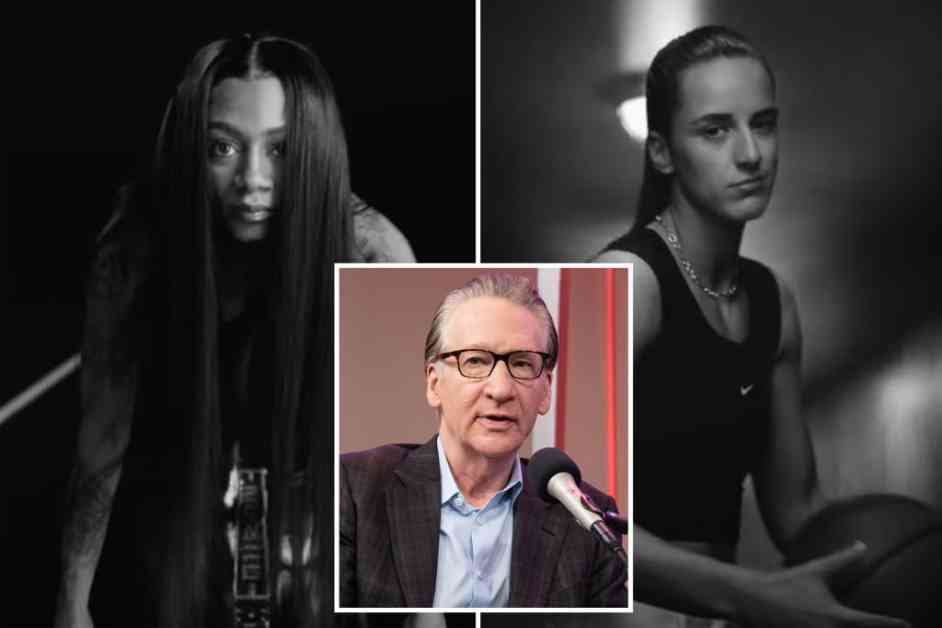Bill Maher, a renowned comedian and political commentator, recently took aim at Nike’s Super Bowl 2025 commercial, which showcases prominent female athletes like Sha’Carri Richardson and Caitlin Clark. Maher criticized the ad for perpetuating what he called a “zombie lie” about the patriarchy, igniting a heated debate around the portrayal of women in sports and society.
The ad, titled “So Win,” features a star-studded lineup of female athletes, including WNBA standouts Caitlin Clark, Sabrina Ionescu, and A’ja Wilson, alongside Olympic runner Sha’Carri Richardson and gymnast Jordan Chiles. Against the backdrop of a black-and-white montage, musician Doechii narrates the internal struggles and doubts faced by female athletes, emphasizing the need to defy expectations and prove critics wrong, all set to the iconic sounds of Led Zeppelin’s “Whole Lotta Love.”
Maher, known for his sharp wit and incisive commentary, did not mince words when critiquing the commercial. He lambasted the ad as a “zombie lie,” a term he used to describe a concept that was once true but has since become outdated, yet is still perpetuated. Maher questioned the validity of the ad’s message, challenging the existence of the so-called “mean old men of the patriarchy” who supposedly hold women back from success.
The comedian’s critique of the commercial extended beyond its content, delving into broader issues surrounding honesty and authenticity in messaging. Maher drew parallels between the ad and the Democratic Party’s approach to engaging with voters, suggesting that audiences could see through insincere or misleading narratives, even in the realm of advertising.
Accompanying Maher’s criticisms were insights from writer Pamela Paul and former Ohio Democratic US Rep. Tim Ryan, who echoed his sentiments regarding the ad’s messaging. Paul characterized the commercial as “dishonest” and “weird and defensive,” highlighting a perceived lack of genuine empowerment in its portrayal of female athletes. Ryan emphasized the need for a more forward-thinking and inclusive approach, suggesting that society has evolved beyond simplistic notions of empowerment and gender dynamics.
Despite the controversy sparked by Maher’s remarks, Nike remained silent in response to requests for comment on the matter. The ad, while intended to celebrate and uplift female athletes, has inadvertently become a focal point for discussions around authenticity, empowerment, and the evolving landscape of gender representation in media and advertising.
In a world where narratives are constantly evolving and perceptions are subject to scrutiny, the debate sparked by Nike’s Super Bowl 2025 commercial serves as a reminder of the complexities inherent in portraying empowerment and gender dynamics. As society continues to grapple with issues of representation and authenticity, the conversation around the ad and its impact on viewers underscores the importance of nuanced and thoughtful storytelling in shaping cultural narratives.

